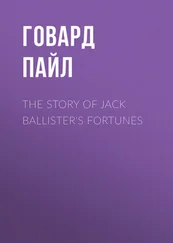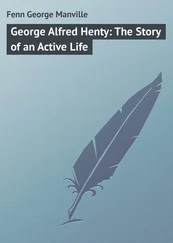Ulrich Frank - Simon Eichelkatz; The Patriarch. Two Stories of Jewish Life
Здесь есть возможность читать онлайн «Ulrich Frank - Simon Eichelkatz; The Patriarch. Two Stories of Jewish Life» — ознакомительный отрывок электронной книги совершенно бесплатно, а после прочтения отрывка купить полную версию. В некоторых случаях можно слушать аудио, скачать через торрент в формате fb2 и присутствует краткое содержание. Жанр: foreign_antique, foreign_prose, на английском языке. Описание произведения, (предисловие) а так же отзывы посетителей доступны на портале библиотеки ЛибКат.
- Название:Simon Eichelkatz; The Patriarch. Two Stories of Jewish Life
- Автор:
- Жанр:
- Год:неизвестен
- ISBN:нет данных
- Рейтинг книги:4 / 5. Голосов: 1
-
Избранное:Добавить в избранное
- Отзывы:
-
Ваша оценка:
- 80
- 1
- 2
- 3
- 4
- 5
Simon Eichelkatz; The Patriarch. Two Stories of Jewish Life: краткое содержание, описание и аннотация
Предлагаем к чтению аннотацию, описание, краткое содержание или предисловие (зависит от того, что написал сам автор книги «Simon Eichelkatz; The Patriarch. Two Stories of Jewish Life»). Если вы не нашли необходимую информацию о книге — напишите в комментариях, мы постараемся отыскать её.
Simon Eichelkatz; The Patriarch. Two Stories of Jewish Life — читать онлайн ознакомительный отрывок
Ниже представлен текст книги, разбитый по страницам. Система сохранения места последней прочитанной страницы, позволяет с удобством читать онлайн бесплатно книгу «Simon Eichelkatz; The Patriarch. Two Stories of Jewish Life», без необходимости каждый раз заново искать на чём Вы остановились. Поставьте закладку, и сможете в любой момент перейти на страницу, на которой закончили чтение.
Интервал:
Закладка:
"To-morrow they'll recover the body of Teacher Sandberg."
All of a sudden a shrill cry rang out and was echoed by the mass of human beings, stirred to the highest pitch of excitement. Horror-struck they scattered in confusion and took to their heels, only now and then looking back fearsomely at a gruesome vision which presented itself to their sight. In one second the Ring was vacated, every one had hidden in the houses. There – slowly and meditatively, like a ghost, Teacher Sandberg stalked across the square, in the garb in which the good Lord had created him. He was absolutely naked, not a shred of clothing upon him; his hands at his legs, as though in his usual fashion he were hiding them in trouser pockets, his feet scraping along the ground.
The Ring looked as though it had been swept. Only the rabbi, the two trustees, the mayor, the aldermen, and the Rebbetzin remained at the Kashte. The Rebbetzin, when the singular figure approached, faced about in confusion and eagerly contemplated the Neptune, who, although a river god, wore much more clothing than Teacher Sandberg. The moonlight glistened on the trident and bathed the entire tragi-comic scene in its pale light. The teacher shuffled close up to the gentlemen, who regarded him with glances of astonishment mixed with disapproval. Was this object Sandberg or his ghost? How could he be wandering about through the city across the Ring past all these people in so scanty a costume? The thing was unheard of; the like of it had never been seen. Presumably the man was dead, and here he was strolling about – and in what a state!
Some of the bolder spirits crept out of their houses again, and here and there a curious face bobbed up behind the window panes. The situation was tense. The Rebbetzin still had her back turned to the group; and the Neptune looked very shy, as if to say: "We barbarians are better people after all; none of us would dare saunter about the Ring in bright moonlight without a shred of clothing on."
Finally the rabbi recovered enough self-possession to address the man standing before him in the garb in which the Lord had fashioned him.
"Is that you, Sandberg?" he asked in a tone of mingled severity and mildness.
"Yes, Herr Rabbiner, it's I," came the plaintive reply.
"Your wife, your children, the congregation, the city, all are mourning you as dead."
"God forbid!" the teacher exclaimed. "Why should I be dead? I am alive, Herr Rabbiner, praised be God, even if something very disagreeable did happen to me."
"He will catch cold, if he doesn't look out." Shmul Eisner, who had come up in the meantime, tossed the joke to another bystander. But no one thought of offering the naked man a bit of clothing. The amazement was still too great. So the audience was continued, and Teacher Sandberg, in the primitive garb in which he was, related his adventure before a college of judges consisting of the rabbinate and the municipal authorities.
In the morning he had gone to take a bath, and had undressed behind some bushes at the edge of the stream near the Petershof dam, where not a soul passes at that hour of the day. He dived into the refreshing depths. The water was delicious. Forgotten the torturing heat, forgotten the hunger and thirst of the fast day! He struck off down stream and let himself be carried along by the soft waves, gently warmed and brightened by the sun. After half an hour, possibly longer, he swam back to the spot where he had undressed – but horror of horrors! his clothes had disappeared. Not a thing had been left behind, not even a shirt to cover his body. Utterly distraught, he ran up and down the bank, hunting for his clothes, calling, crying out, imploring, beseeching help from somewhere. Nothing stirred. Had someone played a trick on him? Had tramps passed by and taken the clothes along as profitable booty? He was absolutely ignorant of how the thing had happened. But one thing was clear; he must hide himself until night, and then find some way of creeping home. He reckoned on the probability that the people, tired out by the fast, would go to bed earlier than usual. So, resigned and thoroughly worn out by the excitement of the fearful adventure, he slid into a field of corn in full ear, ripe for harvesting, and crawled way into its depths to hide himself completely. He dropped down exhausted; the corn-stalks waved high over his head, the crickets chirped, the ragged robins and wild poppies nodded about him. He again began to meditate upon his peculiar position. What happened after that he could not remember. He must have fallen into a deep sleep, and so failed to hear the call of the search parties. When he awoke, the moon was high in the heavens. He did not know what time it was; but he supposed it must be late at night, for he was chilled to the marrow, and dew lay upon the field from which he emerged. Then he wended his way homeward, through the meadows wrapt in solitude and nocturnal quiet. With beating heart he slipped past the houses along the deserted streets. It was like a city of the dead. He thought it must be long past midnight, that everybody was buried in sleep. It could not occur to him that the people, because of his disappearance, had congregated at the Ring. Emboldened by the quiet, he stepped along at a livelier pace, and even calculated that by crossing the Ring and going down Rybniker Street he could reach his home sooner. He was not in the least afraid of meeting anyone at that time except the nightwatch, to whom he could easily explain his plight. So he came through a narrow side street, which ran from the Flour Market and opened right on the Ring and landed – where his appearance was welcomed as a ghost by the excited crowd. And now he was standing before the gentlemen, and he could not have done otherwise, so help him God – Amen!
His savior in need was the Rebbetzin. With averted face she listened to the half-comic, half-pitiful narrative, and suddenly she let her large black mantilla fall to the ground behind her. Shmul Eisner, who noticed the act, and immediately perceived its purpose, sprang forward, picked up the shawl, and hung it about the teacher's trembling limbs. Then, draped in the Rebbetzin's black mantilla, the teacher was led to the shelter of his home, to wife and child.
"Won't Frau Teacher Sandberg be jealous, though," exclaimed Reb Shmul, the joker, "when she sees him coming home with nothing on but the mantilla of the Rebbetzin."
"The chief thing is, he is here," replied his companion. And that is what the whole congregation thought, when it sought its well-deserved rest.
October 6.My position keeps me very busy. In a mining district accidents occur almost daily. Besides, the whisky fiend has to be reckoned with, leading, as it does, to all sorts of excesses, brawls, and murderous assaults. Scarcely a day passes but that I have to make trips into the country, which offers small cheer now in the grey autumn weather and in this dispiriting region. My disposition, naturally inclined to be sombre, becomes still more melancholy; and when I ride through the rain-soaked country, past forges, furnaces, and culm heaps, covered with a thick pall of smoke, with the immediate prospect of seeing dead or injured victims, and having to set down a record of human misery and woe, my mood becomes ever blacker and blacker. I never find time to attend to patients among the upper classes. I believe I am given up as a hopeless case – a Jewish Kreisphysikus, sans wife, who doesn't seek introductions, must be either an abnormality or a capricious, stuck-up fool, at any rate a person not to be reckoned with seriously. My colleagues probably have the same opinion of me. After the inevitable initial formalities, I did not come in contact with them; if chance brings us together, we give each other a cool if courteous greeting.
This exclusiveness has its advantages. The time left free from my duties belongs to me entirely, and I do not spend it thriftlessly in society to which I am indifferent. It has not been my experience that intercourse with many people is of any profit. One gets so little, and gives so much, much too much of what is best and noblest in one's nature, especially if one is a man of feeling, intellect, and ardent temperament. The strongest chord is almost never touched. In the most favorable circumstances, the exchange of courtesies is purely formal, and the acts of friendship are entirely perfunctory. These merely external amenities make men vulgar and untrue, I would not like to use an even stronger expression and say dishonest. Heine's words occur to me:
Читать дальшеИнтервал:
Закладка:
Похожие книги на «Simon Eichelkatz; The Patriarch. Two Stories of Jewish Life»
Представляем Вашему вниманию похожие книги на «Simon Eichelkatz; The Patriarch. Two Stories of Jewish Life» списком для выбора. Мы отобрали схожую по названию и смыслу литературу в надежде предоставить читателям больше вариантов отыскать новые, интересные, ещё непрочитанные произведения.
Обсуждение, отзывы о книге «Simon Eichelkatz; The Patriarch. Two Stories of Jewish Life» и просто собственные мнения читателей. Оставьте ваши комментарии, напишите, что Вы думаете о произведении, его смысле или главных героях. Укажите что конкретно понравилось, а что нет, и почему Вы так считаете.












